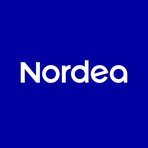Nordea Bank's Strategic Share Buyback: A Financial Dance
November 25, 2024, 4:53 am
In the world of finance, share buybacks are akin to a company taking a long, hard look in the mirror. It’s a moment of self-reflection, a chance to assess value and potential. Nordea Bank Abp, a major player in the Nordic financial landscape, has recently engaged in this introspective dance. Over two consecutive days in November 2024, the bank executed significant repurchases of its own shares, signaling confidence in its financial health and future prospects.
On November 21 and 22, Nordea bought back a total of 571,290 shares, investing approximately €6 million. This move is part of a broader strategy initiated on October 17, 2024, when the bank announced a buyback program worth up to €250 million. The aim? To optimize capital and enhance shareholder value.
The mechanics of these transactions are straightforward yet impactful. On November 21, Nordea repurchased 284,930 shares at an average price of €10.62 per share. The following day, the bank acquired 286,360 shares at a slightly lower average price of €10.57. The total expenditure for these two days reached around €3 million, a drop in the bucket compared to the authorized buyback program.
But why engage in such a strategy? In essence, share buybacks reduce the number of shares available in the market. This can lead to an increase in earnings per share (EPS), making the remaining shares more valuable. It’s a classic case of supply and demand. Fewer shares mean each one holds a larger piece of the company’s pie.
Moreover, buybacks can signal to the market that a company believes its stock is undervalued. It’s a way of saying, “We think we’re worth more than what the market is currently offering.” This can instill confidence among investors, potentially driving up the stock price.
Nordea’s buyback program is not just a random act of financial maneuvering. It’s rooted in a well-thought-out strategy. The bank has a solid foundation, with a robust capital position and a commitment to returning value to shareholders. By holding treasury shares for capital optimization and remuneration purposes, Nordea is positioning itself for future growth while rewarding its investors.
The buyback program is executed in compliance with European regulations, ensuring transparency and fairness in the market. This adherence to regulatory standards adds a layer of credibility to Nordea’s actions. Investors can rest assured that the bank is playing by the rules, making its financial decisions with integrity.
As the dust settles on these transactions, it’s essential to consider the broader implications. Share buybacks can be a double-edged sword. While they can boost stock prices and enhance shareholder value, they can also divert funds from other critical areas, such as research and development or employee compensation. Critics argue that companies should invest in growth rather than buy back shares.
However, Nordea appears to be striking a balance. The bank’s decision to repurchase shares comes alongside its ongoing commitment to sustainable growth. By optimizing capital and returning value to shareholders, Nordea is navigating the delicate dance of financial management.
In the context of the Nordic banking sector, Nordea’s actions are particularly noteworthy. The region has seen a wave of consolidation and transformation in recent years. Banks are under pressure to adapt to changing market conditions, regulatory requirements, and evolving customer expectations. In this landscape, strategic decisions like share buybacks can set a bank apart from its competitors.
Investors are keenly watching Nordea’s moves. The bank’s stock performance in the coming months will be a litmus test for the effectiveness of its buyback strategy. If the stock price rises, it will validate the bank’s decision to repurchase shares. Conversely, if the price stagnates or falls, questions may arise about the wisdom of the buyback.
In conclusion, Nordea Bank’s recent share buybacks are more than just financial transactions. They represent a strategic approach to capital management and shareholder value enhancement. In a world where financial markets can be unpredictable, Nordea is taking proactive steps to secure its future.
As the bank continues its buyback program, it remains to be seen how this will impact its stock price and overall market perception. For now, Nordea is dancing to its own rhythm, confident in its steps and poised for what lies ahead. The financial landscape is ever-changing, but with a solid strategy in place, Nordea is ready to face the music.
On November 21 and 22, Nordea bought back a total of 571,290 shares, investing approximately €6 million. This move is part of a broader strategy initiated on October 17, 2024, when the bank announced a buyback program worth up to €250 million. The aim? To optimize capital and enhance shareholder value.
The mechanics of these transactions are straightforward yet impactful. On November 21, Nordea repurchased 284,930 shares at an average price of €10.62 per share. The following day, the bank acquired 286,360 shares at a slightly lower average price of €10.57. The total expenditure for these two days reached around €3 million, a drop in the bucket compared to the authorized buyback program.
But why engage in such a strategy? In essence, share buybacks reduce the number of shares available in the market. This can lead to an increase in earnings per share (EPS), making the remaining shares more valuable. It’s a classic case of supply and demand. Fewer shares mean each one holds a larger piece of the company’s pie.
Moreover, buybacks can signal to the market that a company believes its stock is undervalued. It’s a way of saying, “We think we’re worth more than what the market is currently offering.” This can instill confidence among investors, potentially driving up the stock price.
Nordea’s buyback program is not just a random act of financial maneuvering. It’s rooted in a well-thought-out strategy. The bank has a solid foundation, with a robust capital position and a commitment to returning value to shareholders. By holding treasury shares for capital optimization and remuneration purposes, Nordea is positioning itself for future growth while rewarding its investors.
The buyback program is executed in compliance with European regulations, ensuring transparency and fairness in the market. This adherence to regulatory standards adds a layer of credibility to Nordea’s actions. Investors can rest assured that the bank is playing by the rules, making its financial decisions with integrity.
As the dust settles on these transactions, it’s essential to consider the broader implications. Share buybacks can be a double-edged sword. While they can boost stock prices and enhance shareholder value, they can also divert funds from other critical areas, such as research and development or employee compensation. Critics argue that companies should invest in growth rather than buy back shares.
However, Nordea appears to be striking a balance. The bank’s decision to repurchase shares comes alongside its ongoing commitment to sustainable growth. By optimizing capital and returning value to shareholders, Nordea is navigating the delicate dance of financial management.
In the context of the Nordic banking sector, Nordea’s actions are particularly noteworthy. The region has seen a wave of consolidation and transformation in recent years. Banks are under pressure to adapt to changing market conditions, regulatory requirements, and evolving customer expectations. In this landscape, strategic decisions like share buybacks can set a bank apart from its competitors.
Investors are keenly watching Nordea’s moves. The bank’s stock performance in the coming months will be a litmus test for the effectiveness of its buyback strategy. If the stock price rises, it will validate the bank’s decision to repurchase shares. Conversely, if the price stagnates or falls, questions may arise about the wisdom of the buyback.
In conclusion, Nordea Bank’s recent share buybacks are more than just financial transactions. They represent a strategic approach to capital management and shareholder value enhancement. In a world where financial markets can be unpredictable, Nordea is taking proactive steps to secure its future.
As the bank continues its buyback program, it remains to be seen how this will impact its stock price and overall market perception. For now, Nordea is dancing to its own rhythm, confident in its steps and poised for what lies ahead. The financial landscape is ever-changing, but with a solid strategy in place, Nordea is ready to face the music.

